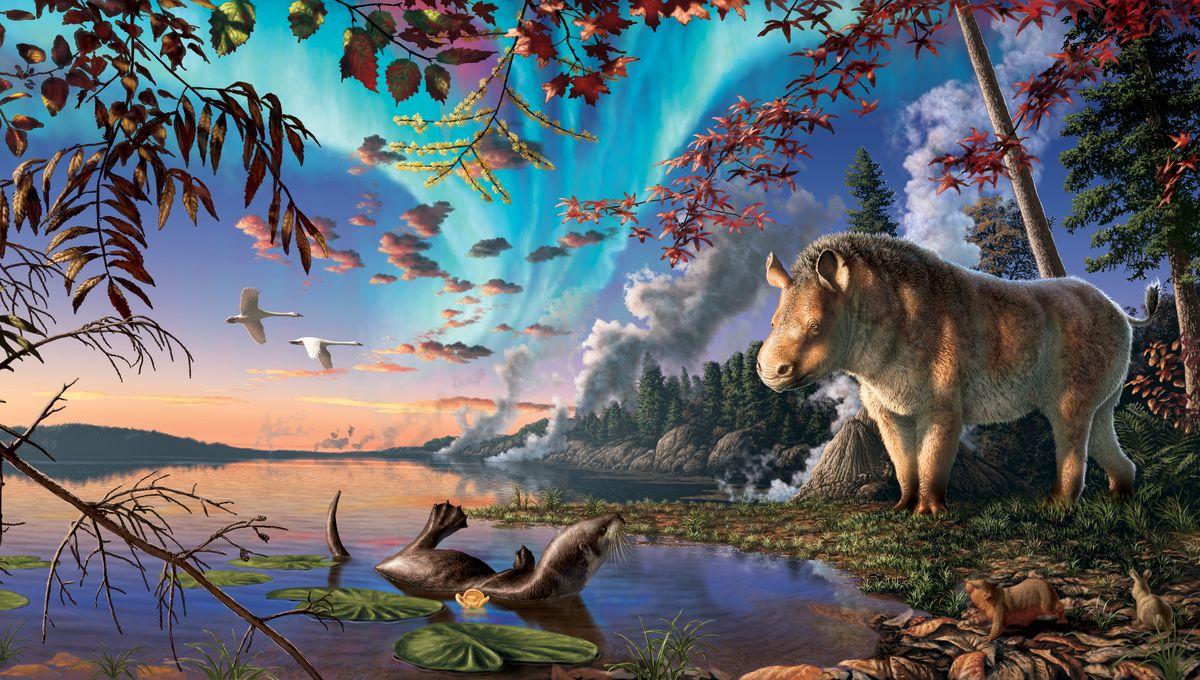-
Новости
- ИССЛЕДОВАТЬ
-
Страницы
-
Статьи пользователей
-
Форумы
Remarkably Preserved 23-Million-Year-Old “Frosty” Rhino Discovered In Canadian Arctic

Remarkably Preserved 23-Million-Year-Old “Frosty” Rhino Discovered In Canadian Arctic
An ancient, and adorably named, new rhino species has been discovered in the Canadian Arctic. The exceptionally well-preserved and almost complete fossil represents the northernmost rhino species found to date, and belonged to a beast that roamed this region around 23 million years ago.
The rest of this article is behind a paywall. Please sign in or subscribe to access the full content. The new species, unearthed in Haughton Crater on Devon Island, Nunavut, has been named Epiatheracerium itjilik. Its species name “itjilik” means “frosty” or “frost” in Inuktitut, referencing the icy conditions in which it was found. However, the area would have been a temperate forest habitat while the extinct rhino was alive in the Early Miocene, some 23 million to 16 million years ago. “Today there are only five species of rhinos in Africa and Asia, but in the past they were found in Europe and North America, with more than 50 species known from the fossil record,” Dr Danielle Fraser, lead author of a study presenting the findings, said in a statement. “The addition of this Arctic species to the rhino family tree now offers new insights to our understanding of their evolutionary history.” Based on the bones that the newly identified “Arctic rhino” left behind, the researchers estimate it would have been relatively small and slight, comparable to the modern Indian rhinoceros, which measures in at approximately 1.7 meters (5.6 feet) tall. However, unlike its contemporary counterpart, E. itjilik didn’t have a horn. The rhino likely died in early to mid-adulthood, wear on its cheek teeth indicates. The fossil of Epiatheracerium itjilik – about three-quarters of the animal's bones were recovered. Image credit: Pierre Poirier © Canadian Museum of Nature Initially discovered in 1986, when teeth, jawbone, and parts of the skull were identified, the specimen has been added to in the years since, culminating in an incredibly rare example of an ancient rhinocerotid. “What's remarkable about the Arctic rhino is that the fossil bones are in excellent condition. They are three dimensionally preserved and have only been partially replaced by minerals,” Marisa Gilbert, study co-author, explained. “About 75 percent of the skeleton was discovered, which is incredibly complete for a fossil.” The team’s analysis of this unique find offers a glimpse into how rhinos dispersed between North America and Europe many millions of years ago. They were able to place the new species in the rhino family tree by studying other, mostly extinct, taxa of rhinocerotids, which suggested that the Arctic rhino made its way westward using the now-submerged North Atlantic Land Bridge. It was previously thought that this land bridge had facilitated species dispersal until around 56 million years ago, but the discovery of E. itjilik challenges that, suggesting ancient beasties migrated from Europe to North America much more recently than that, potentially as late as the Miocene. Marisa Gilbert (left) and Dr Danielle Fraser with the Arctic rhino fossil. Image credit: Pierre Poirier © Canadian Museum of Nature “It’s always exciting and informative to describe a new species. But there is more that comes from the identification of Epiaceratherium itjilik, as our reconstructions of rhino evolution show that the North Atlantic played a much more important role in their evolution than previously thought,” added Fraser. “More broadly, this study reinforces that the Arctic continues to offer up new knowledge and discoveries that expand on our understanding of mammal diversification over time.” The study is published in Nature Ecology & Evolution.



